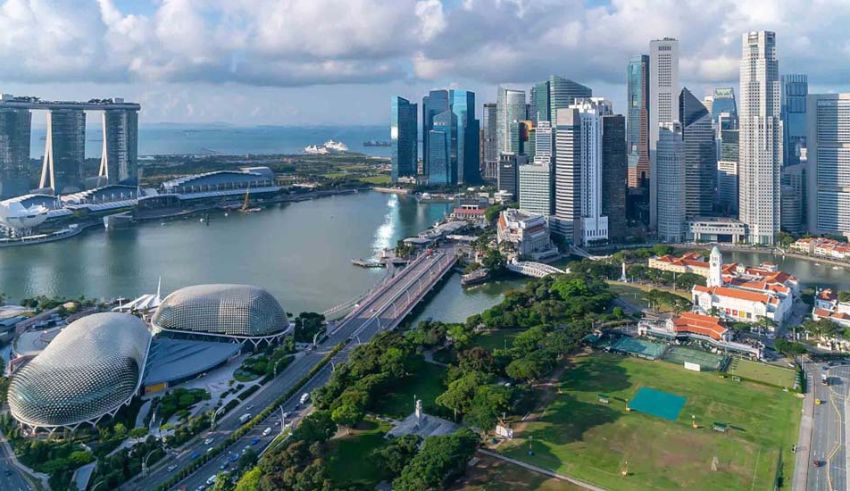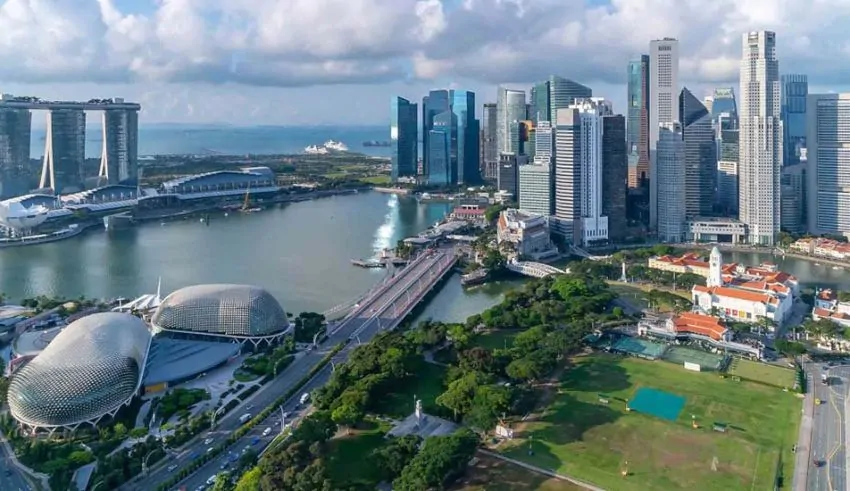

(C) Singapore
Singapore’s general population grew noticeably 2% in the year before June 2024, hence increasing the city-state’s total population to 6.04 million. According to a recent government assessment, expansion was largely caused by the rise in non-resident population. This increase shows how constantly Singapore depends on foreign workers, dependents, and foreign students to keep its economy and workforce intact.
The non-resident population expanded by 5% a year to reach 1.86 million in June 2024 including foreign workers, their families, and international students among others. Particularly in industries dependent on foreign expertise and labor to fill labor shortages, the growth of non-residents is quite essential for sustaining Singapore’s labor market. Foreign workers are indispensable in sectors including construction, manufacturing, and domestic services, so sustaining the country’s lively economic life.
This flood of non-residents echoes a trend seen in prior years whereby Singapore has gradually depended on outside sources to support its economic development and maintain its competitive advantage in the world market. Given the limited local workforce of the country, non-residents are essential in preserving the workforce balanced and resolving demographic problems.
Singapore’s citizen count developed more softly than the quick rise in the non-resident population. Rising from 3.61 million a year before, the population increased by just 0.7% in June 2024 to reach 3.64 million. This very slow development draws attention to the long-standing issue of Singapore’s low birth rates, which have been the main focus of legislators aiming to ensure a sustainable population count.
Despite several government programs aimed to increase higher birth rates, Singapore continues to face a dwindling native population. Recently, the country implemented many measures including financial incentives for families, flexible working schedules, and enhanced parental leave. These programs have not, however, greatly increased birth rates, so the country has a slow-growing citizen population.
Although the proportion of persons 65 years of age and above is still rising, aging of Singapore’s population remains a big issue. Originally 12.4% just ten years ago in 2014, as of June 2024 roughly 19.9% of the citizen population fell into this age category. Long-term challenges for the city-state brought about by this demographic shift toward an older population largely concern healthcare, social services, and economic productivity.
As the population ages, the government will most likely face increased pressure to assist senior citizens with retirement plans and suitable healthcare. The growing count of senior citizens requires stronger social safety nets, elder care programs, and medical facilities. Furthermore, the shrinking working-age population suggests that, given more people depend on public resources, less will be supporting the economy.
Singapore has been implementing measures aimed to help older workers, encourage active aging, and improve healthcare facilities in response. Programs promoting lifetime learning, re-skilling, and senior worker involvement now form key elements of the government’s strategy to influence the demographic transformation. Moreover, the growing need is being met by enlarging healthcare services as public and private sectors’ spending increases.
The endeavors of the government to balance encouraging population increase through non-residents with resolving the problems presented by a slow-growing citizen population and an aging society will determine future policies of Singapore. Rising non-resident population begs issues of social integration and the need to ensure Singapore remains a friendly nation where both citizens and immigrants may coexist in peace.
Simultaneously, regulating public services, housing, and infrastructure development to fit a growing population is becoming more and more important. With a small 728 square kilometer land area, Singapore finds it especially difficult to assure efficient resource distribution and control population density. The ability of the city-state to maintain a good level of living while enabling a larger and more varied population determines most of its ongoing success.
Singapore’s demographic future is most likely going to remain a key focus as politicians negotiate the intricacy of population increase, economic development, and social cohesiveness. Especially as the aging citizen population creates increasing demand for foreign labor to sustain the economy and caring sectors, the continued reliance on non-residents will most likely continue in the near future.
The government can thus also look at various initiatives to increase higher birth rates and to attract more permanent residents and citizens, helping to sustain the long-term demographic structure. Given the growing proportion of older citizens, developing sustainable solutions that tackle the social and financial ramifications of an aging population as well as the economic ones will be crucial for Singapore’s future.
Driven by the rise of non-residents, Singapore’s population will reach 6.04 million in 2024; yet, the country still suffers immensely to control its aging citizen population and ensure that it may maintain a stable, balanced demographic structure. Whether Singapore can overcome these challenges and provide a sustainable and wealthy future for every one of its people depends much on the policies followed in the next years.
The Chinese Coast Guard ships extended their stays near the Senkaku Island region which led Japan to lodge formal diplomatic…
Numbeo reports in the 2025 Safety Index that the United Arab Emirates (UAE) has become the second safest country in…
Thailand’s automobile sector remains heavily challenged as car output during February 2025 dropped 13.62% year on year to 115,487 units.…
The Canadian Security Intelligence Service (CSIS) has officially warned about foreign entities trying to change election results on April 28th.…
Samsung Electronics CO-CEO Han Jong-hee has passed away suddenly after suffering a heart attack, as announced Tuesday. The sudden demise…
The Japanese market for mergers and acquisitions now allows unsolicited acquisition offers due to recent Ministry of Economy Trade and…
This website uses cookies.
Read More